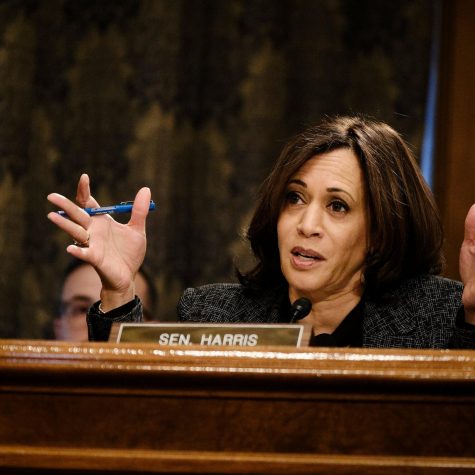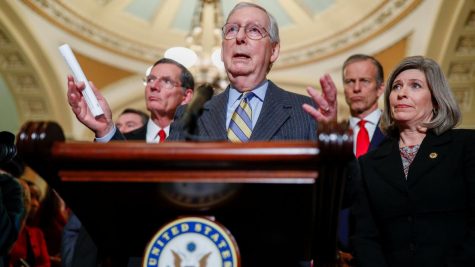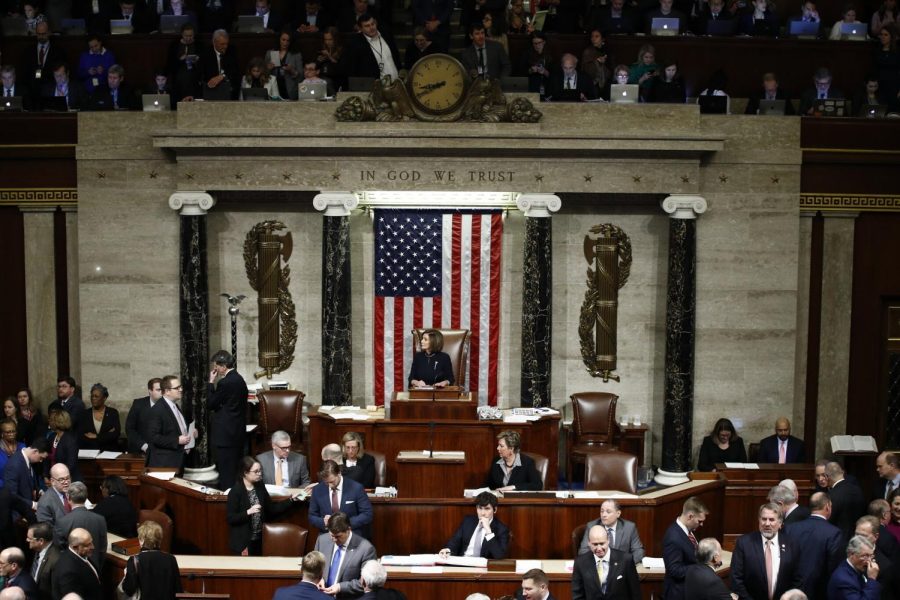Theatrics at the National Stage and its Consequences
During the 116th session of Congress, legislators produced a combined 3,000 posts across Facebook and Twitter. Coincidentally, the 116th session of Congress also passed a disappointing and far-below-average total of 223 substantive bills. Almost half of those bills were passed within the last two months of the Trump presidency, only spurred to action by outright violence in the streets. Either it takes thirteen-and-a-half tweets to get a bill passed or there is a grave problem with how both the public and legislators weigh issues against showmanship. And, nothing displays the online Capitol circus ring greater than the tawdry foregone conclusion that is the incoming second impeachment. Not only is this trial ineffective, but it leaves within its wake worrying possibilities for the future of the Biden presidency.
 To be clear, Trump’s inciting of the Capitol riot is, by far, an impeachable offense (even if a WSJ op-ed by an obscure bureaucrat disagrees). However, the problem lies within the possibility rather than the ability of his being judged guilty. Only five Republican Senators, all the usual suspects, voted to move on with the impeachment, and Joe Manchin is anything but behooved to oblige to the DNC’s wishes. That leaves twelve going on thirteen votes in which Schumer cannot account for, leaving a partisan gap nearly as large as the difference between the two parties’ COVID relief proposals.
To be clear, Trump’s inciting of the Capitol riot is, by far, an impeachable offense (even if a WSJ op-ed by an obscure bureaucrat disagrees). However, the problem lies within the possibility rather than the ability of his being judged guilty. Only five Republican Senators, all the usual suspects, voted to move on with the impeachment, and Joe Manchin is anything but behooved to oblige to the DNC’s wishes. That leaves twelve going on thirteen votes in which Schumer cannot account for, leaving a partisan gap nearly as large as the difference between the two parties’ COVID relief proposals.
Of all the Republican zealots in the world that one could fathom leading the charge of opposition to the impeachment, two Texas senators, one turtle-faced Kentuckian, and a certain Missourian firebrand with a tentative book deal immediately strike one’s mind. One would almost have to warrant a guess as zany as a extremist pundit such as Dennis Prager or Steven Crowder before one could work up the gumption to even consider that Rand Paul, a former Trump critic and paleoconservative, was at the head of objecting to the second impeachment. Mr. Stand-With-Rand is threatening a mass exodus of Republicans from the main party that would most certainly stoke more discordancy into the US political system than there is already, a feat nearly unimaginable by today’s standards.
 So what has the Democratic Party done to heal the soul of the country and prevent the ongoing political turmoil that’s poisoning the political atmosphere? They’ve stood stubbornly in support of another trillion-dollar COVID relief bill as deficit-oriented moderates such as Mitt Romney—key “swing” votes for the impending impeachment—ardently wish for a change in course. Even the Vice President of the United States, Kamala Harris, is so stuck on the myopic goal of demonizing any dissenting opinion that she had the audacity to alienate one of her own party members, Joe Manchin, on his own home-state radio programming. The apathy to this slow-moving disease of idleness has left America vulnerable to flare-ups, such as Mike Huckabee’s proposal to impeach Vice President Harris, a decision that—if enacted—could leave an even more dangerous precedent for the already free-handed approach to the impeachment process.
So what has the Democratic Party done to heal the soul of the country and prevent the ongoing political turmoil that’s poisoning the political atmosphere? They’ve stood stubbornly in support of another trillion-dollar COVID relief bill as deficit-oriented moderates such as Mitt Romney—key “swing” votes for the impending impeachment—ardently wish for a change in course. Even the Vice President of the United States, Kamala Harris, is so stuck on the myopic goal of demonizing any dissenting opinion that she had the audacity to alienate one of her own party members, Joe Manchin, on his own home-state radio programming. The apathy to this slow-moving disease of idleness has left America vulnerable to flare-ups, such as Mike Huckabee’s proposal to impeach Vice President Harris, a decision that—if enacted—could leave an even more dangerous precedent for the already free-handed approach to the impeachment process.
The point being, the impeachment trial will bring nothing but inactivity and Fox News fervor rather than real substantive change in the form of effective legislating such as the passing of bipartisan relief bills (not the oh-so-very-dreaded stop-gap proposal that typically wins out) and laws that have greater importance than preventing a single individual—whose approval ratings have been far less than stellar for painfully clear reasons—from running for office.

Jack Dougherty is a senior at Keystone who enjoys participating in Model UN and Academic Worldquest and has lately found himself in the midst of helping...

